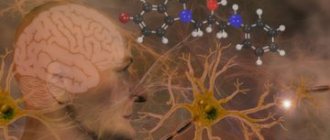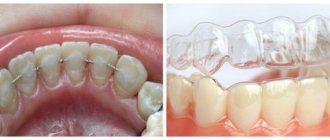From this article you will learn:
- What are the causes of senile dementia?
- Can an infectious disease lead to the development of senile dementia?
- What are the stages of senile dementia?
- Is it possible to recover from senile dementia?
- How to prevent the development of senile dementia in yourself?
With age, the human brain undergoes changes that negatively affect cognitive functions. Elderly people often have memory impairment, lose professional and social skills, and lose the ability to learn. Similar symptoms are observed in 3–5% of those over 60 years of age and in 20% of those over 80 years of age. These are typical signs of senile dementia. Its official name is senile dementia. What it is, what are the reasons for its appearance and methods of treatment, what kind of help is required for a person who has been given this difficult diagnosis - you will learn from our article.
Why does senile dementia develop?
Among the most obvious causes of senile dementia, doctors note damage to the central nervous system caused by diseases that lead to degeneration and destruction of brain cells.
The opinion of most experts is that the victims of this disease are people with pronounced problems of the circulatory, nervous systems and psyche. Heredity does not play a decisive role in the development of senile dementia, but this risk factor cannot be completely excluded.
We recommend
“Senile dementia: causes, symptoms, patient care”
More in more than half of cases, senile dementia is associated with degenerative processes in the nervous system. This is typical for the so-called senile dementia of the Alzheimer's type, in which the cerebral cortex suffers, and its destruction is an independent disease.
In addition to Alzheimer's disease, proven causes of senile dementia include:
- age-related changes in the vessels of the brain (atherosclerosis) - deposition of cholesterol plaques on their walls, narrowing the lumen of the vessels and disrupting the flow of blood to the brain cells, as a result of which the supply of nutrients deteriorates and the risk of stroke increases;
- thinned inelastic vessels that are unable to restrain the normal flow of blood, which leads to its effusion into a certain area of the brain and subsequent tissue necrosis with inevitable neurological consequences;
- some infectious diseases (AIDS, viral encephalitis, meningitis);
- head injuries: a concussion is accompanied by a severance of neural connections and subsequent replacement by connective tissue;
- the presence of a tumor, including a benign one, which causes disruption of normal brain activity: a growing tumor compresses neighboring areas of the brain and negatively affects its functioning.
Additional risk factors contributing to the appearance of senile dementia include diabetes mellitus, hypertension, chronic alcoholism - diseases that adversely affect the condition of nerves and blood vessels. Problems with blood supply to the brain due to poor condition of the vascular system cause inhibition of cognitive functions. Senile dementia can be a consequence of either one acting factor or a combination of them. In this case, senile dementia of mixed type is diagnosed.
The mechanism of development of mental disorders in old age is quite complex. First of all, the changes affect the functions of the hypothalamic structures, especially those regulating metabolic and endocrine processes (pituitary gland). An imbalance of hormones negatively affects the functioning of a variety of body systems, including a negative impact on the functioning of the cortex and subcortical structures of the brain, which become overly susceptible to external factors. Situations that are harmless to a healthy person can cause a nervous breakdown in a patient with senile dementia.
The progression of the disease is accompanied by the death of neurons that are responsible for mental and mental activity, as well as social adaptation. Memory loss occurs, the ability to acquire new skills and logical thinking is lost. Over time, interest in surrounding people and events fades away, and the later stages are characterized by an inability to take care of oneself in everyday life.
The morphology of senile dementia manifests itself in a decrease in brain mass and volume due to atrophy. Its uniformity is expressed in the preservation of proportions between brain regions, their configuration, sharpening of the gyri and expansion of the sulci and ventricles.
There is a decrease in the size of neurons, their compression while the contours remain unchanged. In place of the dead nerve processes, connective tissue is formed, thanks to which they become sclerotic, that is, glued to each other.
Diagnosis of dementia in older people
Diagnosis of senile dementia is a multi-step and complex process. Methods for recognizing the disease are similar to those for identifying schizophrenic disorder, since the pathogenesis of development is quite similar. In both cases, the causes of destruction of nerve cells are several factors: For example, metabolic disorders, vascular diseases or oncology. To prescribe appropriate treatment, a tandem of specialists (neurologist, psychiatrist, psychotherapist) must identify all the underlying factors that led to dementia.
Modern medicine uses the following techniques:
- Recording patient complaints and conducting a psychiatric examination.
- Detailed neurological history.
- An examination conducted by a clinical psychologist that reveals the state of memory functions, logical thinking, and intellectual abilities.
- Drawing up a general clinical picture based on blood tests.
- Ultrasound diagnostics, neurotests.
Forms of the disease and stages of senile dementia
Regardless of the causes of the disease, it is characterized by common symptoms, the main of which can be called memory disorder. The brain in different patients is affected to varying degrees, so there are several forms of senile dementia:
- mild senile dementia, in which social activity decreases, but the ability for everyday self-care is fully preserved;
- moderate senile dementia, it is characterized by loss of skills in using modern technology, the patient finds it difficult to endure prolonged loneliness, but the ability to care for himself is not lost;
- severe senile dementia, when we are talking about complete social maladaptation of an elderly person and inability to self-care.
From an etiological point of view, senile dementia belongs to one of three groups:
- atrophic (primary damage to brain neurons, not associated with vascular disorders, occurring against the background of Alzheimer's disease, Pick's disease or dementia with Lewy bodies);
- vascular (secondary damage to nerve cells due to impaired blood supply to the brain);
- mixed.
We recommend
“Senile dementia: causes, symptoms, treatment” More details
Senile dementia is a progressive type of disease, there are three stages:
- Initial. Against the background of impaired intellectual activity, the patient understands that he needs treatment. The ability to perform normal household activities is retained - cleaning, preparing food, and performing personal hygiene.
- Moderate. Intellectual activity deteriorates, the ability to critically assess one’s own condition decreases. Carrying out everyday activities causes difficulty; an elderly person forgets to turn off the gas and electrical appliances, or close the door lock, thereby exposing himself and others to danger. Patients at this stage require constant supervision, but they are still able to eat, wash, and dress independently.
- Severe dementia. The stage of complete disintegration of personality begins. The patient does not recognize his relatives, does not feel hungry or thirsty, cannot eat on his own, refuses to communicate and loses the ability to think logically. Over time, movement disorders develop, the patient does not walk or chew food. It requires constant care.
Symptoms and signs
The overall picture of development is quite multifaceted; it may differ depending on the general pathogenesis, age and individual nuances of the patient’s psyche. Among the main primary signs or main early symptoms are the following:
- loss of ability to perform normal activities (caring for oneself, for example, independently);
- violation of logical and cause-and-effect relationships;
- behavioral and personality changes;
- manifestation of negative character traits.
At the physiological level, headaches may become more frequent, nausea, and absent-mindedness may appear. It is worth noting that, regardless of the phase, degree or form of the disease, the patient’s basic symptom is memory loss.
The terminal stage of the pathology is “Senile dementia ,” which is most often observed in older people; In simple terms, it is also called senile dementia or senile “senility.” Most often it occurs after 65 years, and for every man there are 2-3 women with this diagnosis. The first symptoms of senile dementia are practically unnoticeable, but over time they progress rapidly. Initially, the disorder is characterized by an accentuation of the patient’s negative character traits; manifestations such as stinginess, stubbornness, grumpiness, and aggression intensify. Further, the patient becomes extremely egocentric, unemotional, cold towards loved ones, and incapable of empathy. There is a loss of former interests, sleep disturbance, and the level of criticism decreases. The most pronounced symptom is memory loss. Over time, the patient forgets more and more, right down to the very last actions he performed. For example, he puts something on the stove to heat and forgets, or puts the TV remote in the refrigerator.
Treatment of senile dementia and prognosis
Cases of complete relief from this disease have not yet been recorded. Most often we are talking about measures to stabilize the condition, slow the progression of the disease and maintain an acceptable quality of life for the patient.
The need for inpatient observation arises with symptoms that cannot be relieved in an outpatient setting - confusion, acute affective states. In most cases, an integrated approach to treatment is used, including medication and psychotherapy, as well as work with relatives in whose care the patient is.
Timely administration of medications can prevent a sharp deterioration of the condition. Experts prescribe nootropic drugs, drugs to improve blood supply to the brain, and stimulants of dopamine receptors in the central nervous system to patients with senile dementia. Tranquilizers and antidepressants are used according to indications.
With the vascular etiology of the disease, medications are needed to reduce blood pressure and cholesterol levels. Psychotherapy is aimed at maintaining social adaptation and communication with loved ones. The patient is not allowed to withdraw into himself, he is encouraged to live an active life, moderate physical and mental stress.
We recommend
“Treatment of dementia in older people: drugs for different stages of the disease” More details
The general condition of the body is of great importance, therefore patients with senile dementia are strictly recommended to have a healthy lifestyle, avoid bad habits and treat concurrent diseases. First of all, you should get rid of risk factors: for example, if the cause of the disease is a stroke, you need to lose weight, keep your blood pressure under control and exercise regularly.
Diabetics need to periodically measure their blood sugar and avoid dietary violations. When senile dementia is caused by tumors in the brain, operations are performed to remove them. Concomitant hypothyroidism requires appropriate hormonal therapy.
The World Health Organization predicts an increase in the number of cases of senile dementia diagnosed in the coming decades. Experts attribute this to a trend towards an increase in the incidence of obesity, hypertension and diabetes, which often serve as a background for vascular-type cognitive disorders.
Each family solves the issues of caring for patients with senile dementia in its own way. The most common options are supervision by immediate family, the services of a professional caregiver, or placement in a specialized medical facility. It is believed that patients endure being in a familiar environment less painfully, but for relatives, coexistence with such an old man becomes a real test.
Competent care greatly prolongs the life of older people with Alzheimer's disease or senile dementia of vascular origin. A combination of pharmacological and psychotherapeutic treatments makes it possible to delay their care.
A complete cure for senile dementia is impossible; the brain undergoes irreversible changes that modern medicine cannot stop. Early diagnosis and appropriate medication support delays the onset of complete personality destruction, as a result the patient can live up to ten years.
We recommend
“What to do for an elderly person with dementia” Read more
Severity of dementia: criteria for diagnosis
Regardless of the causes of dementia, the following degrees of severity of the disease are distinguished:
- light;
- average or moderate;
- heavy.
Each of them is based on a set of cognitive impairments in the patient, which lead, to one degree or another, to maladjustment in everyday life. This also takes into account other pathological manifestations, such as movement and pelvic disorders. The sphere of higher nervous activity is usually assessed according to the following criteria:
- orientation in personality, time and space;
- the ability to recall old and remember new information;
- ability to concentrate;
- ability to count quickly, speak coherently, write, draw;
- quality of thinking and perception of information;
- fulfillment of assigned single- and multi-stage tasks.
There are additional criteria that may be required if the baseline test data shows borderline results. The doctor also takes into account such indicators as the emotional state, the patient’s independence in everyday life, the patient’s attitude towards his own condition - the presence or absence of criticism. When cognitive impairment reaches the diagnosis described, the ability to perform professional duties, as a rule, is no longer discussed. If a person has mild dementia, it may be possible to perform a limited number of work skills.
Effective prevention of senile dementia
Medicine does not yet know methods that can completely eliminate the risk of senile dementia, but the effectiveness of some measures that reduce the likelihood of the disease has been scientifically proven.
The diagnosis of senile dementia is much less common in people who:
- adhere to the principles of proper nutrition, monitor the level of cholesterol in the blood;
- do not smoke and drink alcoholic beverages very moderately;
- exercise regularly.
Activities that require intellectual stress help prevent the development of cognitive disorders. Among those who like to read, solve crosswords, play chess and solve logical problems, there are very few patients with senile dementia. The risk of senile dementia is also reduced for those whose hobbies involve fine motor skills of the fingers - fans of knitting, bead weaving and assembling pictures from puzzles.
The topic of senile dementia has been well studied by experts and, based on the results of numerous studies, it is possible to formulate recommendations that will minimize the risk of this disease.
- Diet It has been noted that among the residents of Italy, Greece and other Mediterranean countries there are many long-livers and few cases of senile dementia (compared to other territories). Scientists believe that one of the reasons is the peculiarities of the diet, which is dominated by fish and seafood, olive oil, fresh vegetables and wine.
Including the following products in your daily menu will help reduce the risk of senile dementia:- greens (salads, dill, parsley, cilantro);
- berries (blackberries, blueberries, strawberries, raspberries, blueberries);
- nuts (walnuts, cashews, almonds, peanuts, Brazilian);
- legumes (peas, chickpeas, beans, soybeans, lentils);
— fish (mackerel, hake, pollock, herring, tuna, carp, crucian carp, pelengas);
- olive oil;
- dry red wine;
- poultry meat - turkey, chicken, guinea fowl;
- whole grains.
- Air
The atmosphere polluted by exhausts from industrial enterprises and motor vehicles negatively affects the cognitive health of residents of megacities. In large cities, more cases of senile dementia are recorded than in ecologically clean areas. - Alcohol
Excessive consumption of alcoholic beverages is harmful to the body. Alcohol, especially strong alcohol, is categorically not compatible with the principles of a healthy diet and is not recommended for use for the effective prevention of senile dementia.However, there are research results from Italian scientists, according to which, in elderly people over 65 years of age who regularly consumed dry wine, cognitive impairment was noted less frequently than in absolute abstainers. Doctors explain this by the positive effects of small doses of alcohol on the cardiovascular system and the antioxidant effects of wine.
- Vitamin D
Studies of the effect of vitamin D were carried out in different countries, and the results of experiments clearly confirmed that its low content in the blood serum greatly increases the risk of senile dementia.Vitamin D has a positive effect on the condition of blood vessels in the brain and stimulates white blood cells, the function of which is to cleanse the body of amyloid accumulations, a protein that causes memory loss and provokes the development of Alzheimer's disease.
We recommend
“Vitamins for older people over 70: which ones are needed first” Read more
The source of vitamin D is sunlight and fatty fish. If you cannot obtain enough vitamin D naturally, you must take it in the form of dietary supplements. - Mood
Senile dementia is more susceptible to emotionally unstable people who take even minor troubles to heart throughout their lives. In order to prevent senile dementia, it is recommended to react more calmly to stress, everyday troubles, and family discord. - Sleep patterns
Sleep disturbances can also trigger the development of Alzheimer's disease and other types of senile dementia. Insomnia leads to the fact that the body is not cleansed of toxins that appear as a result of the breakdown of proteins. Their accumulation in tissues has a degenerative effect on brain cells. - Physical activity
To maintain normal condition, the body needs movement. It stimulates active blood circulation and oxygen supply to the brain. This does not mean that you need to exhaust yourself by running marathon distances, we are talking about the doctor-recommended 8-10 thousand walking steps daily. - Environment Loneliness
has an indirect influence on the development of senile dementia. Older people living away from relatives are more likely to suffer from cognitive impairment. Of course, older people surrounded by children and grandchildren are also not immune to this diagnosis, but in general they are less at risk of senile dementia. Constantly being immersed in the daily activities of the younger generation allows them to maintain clarity of mind and interest in life longer.
Prevention
No one is immune from developing senile dementia. But if you follow simple rules, the disease can be significantly alleviated and its onset can be delayed.
Prevention of the disease includes:
- Maintaining proper nutrition. The diet should include fresh fruits and vegetables and cereals daily. These products prevent the formation of many pathologies.
- Weight control. Excess body weight is one of the most common provoking factors.
- Complete cessation of smoking and drinking alcohol.
- Maintaining a high level of physical activity.
How to behave if a loved one is diagnosed with senile dementia
Age-related cognitive disorders often have a greater negative impact on the patient’s environment than on himself. An elderly person suffering from senile dementia gradually loses the ability to critically assess his condition as the disease develops, while the inappropriate behavior of a person with dementia places a heavy burden on loved ones. This is a difficult test that millions of people go through, forced to watch the gradual decline of a loved one.
We hope our advice will help you set the right attitude towards a patient with senile dementia. In psychiatry the following recommendations are given:
- Become familiar with the first signs of the disease. This will allow you to contact doctors as early as possible and prescribe treatment. Early diagnosis of senile dementia prolongs the normal life of an elderly person and minimizes negative consequences.
- No matter how difficult it may be, try to maintain the same attitude towards the patient. Just because he doesn't answer you doesn't mean he doesn't hear or understand anything. Do not allow your communication to be reduced only to physiological manipulations - feeding, washing, changing clothes.
- Avoid being overly emotional. A person suffering from senile dementia can be harsh and unpredictable in his actions. Try to take this calmly, avoiding retaliatory aggression.
Features of moderate dementia
Dementia of the 2nd degree is characterized by a rapid increase in deviations in the emotional-volitional sphere. Such patients are characterized by the following personal characteristics:
- aggressiveness;
- malice;
- vindictiveness;
- waywardness;
- pickiness.
Anxiety and depression are worsening. In some cases, the appearance of psychiatric symptoms is possible: psychosis with delusional ideas and even the development of schizophrenic stupor - catatonia.
The patient's thinking is very detailed. He can remain fixated on one thought or situation for hours. At the same time, the ability for long-term directed, conscious concentration of attention is lost. There are problems with orientation in time, movements are “indistinct” in some cases. A decrease in visual, auditory and verbal memory leads to the need to repeat information several times. The patient does not remember important facts from the biography or their chronology. They can be replaced by unreal events, so-called confabulations. At the same time, the general store of knowledge is preserved.
Moderate dementia is an indication for constant monitoring of the patient. Lack of criticism of one’s behavior and incorrect assessment of capabilities can lead to situations that threaten the patient’s safety. In everyday terms, the situation can be characterized as follows:
- independent use of household appliances is very difficult;
- the patient has difficulty closing door locks;
- in some cases it becomes impossible to use a mobile phone;
- under supervision, the patient can observe the rules of personal hygiene, perform simple manipulations such as cleaning, shaving, changing clothes, and eating.
Moderate dementia does not allow one to live independently or move around the city. Even going to the nearest store is a very risky undertaking.
First stage
It is important to diagnose the initial manifestations of dementia, since the first stage of dementia is often assessed as negative manifestations of senility and forgetfulness. If it is possible to recognize the symptoms of the initial stage of dementia in time and its treatment is started in a timely manner, there is a real opportunity to slow down the rate of development of the disease and prolong the patient’s life.
Signs
Symptoms at the onset of the disease are as follows:
- there is indifference to close relatives, ignoring their interests;
- irritability about one’s forgetfulness, accusing others of stealing property;
- grumpiness, judgment of other people;
- loss of orientation in a new unfamiliar environment (during hospitalization in an inpatient department);
- memory deterioration (names, numbers, sequences of actions are forgotten), problems arise with remembering new information.
Mood disturbances in the form of depression are often observed. Through careful questioning, it is usually discovered that low mood has been troubling the patient for several years before problems with memory and thinking.
At the beginning of dementia, an elderly person orients himself in the seasons, days of the week, and understands the clock. Memory deterioration at this stage can be compensated with the help of notes, written instructions, and special applications on a mobile phone. Everyday skills are not completely lost, but problems appear with their implementation. An older person in the early stages of dementia is able to maintain independence but needs occasional assistance.
Diagnostics
A diagnostic examination allows you to timely diagnose the disease when the first signs of intellectual impairment appear:
- functional activity of thyroid hormones;
- cholesterol and sugar levels in peripheral blood;
- genetic analysis of predisposition to Alzheimer's disease;
- positron emission tomography.
Special tests that show emerging memory impairment (amnesia for current or past actions, impaired thinking, ability to concentrate) help make a diagnosis.
What happens in the brain
The initial stages of the formation of dementia are characterized by the appearance of small pathological foci in the brain. Vascular processes are accompanied by the development of microzones of brain tissue infarction. This is a consequence of progressive encephalopathy of a hypertensive and atherosclerotic nature. The initial signs are accompanied by the formation of small affected areas; neighboring cells partially take over the function of the victims. For this reason, pathological manifestations are compensated.
In Alzheimer's disease, the cell is affected by a specific protein (amyloid), and its structure is destroyed. The affected cell cannot perform its function, and the connection between neurons is gradually destroyed. This leads to a disruption in the perception of new information and a lack of reproduction of existing information. Amyloid protein can be detected by positron emission tomography using a contrast agent, as well as by spinal puncture.
Treatment
At an early stage, there is a chance to slow down the development of the disease.
In order to stop the death of neurons, a number of measures are taken. Treatment methods for early stage senile dementia
| Medicines | Psychotherapy | Rehabilitation |
|
|
|
To obtain a sustainable effect, regular long-term courses of medications are required, as well as regular rehabilitation exercises. An elderly person should exercise under the guidance of relatives or medical personnel.
Important! Mood disorders should be corrected with a course of treatment with antidepressants or herbal sedatives.
Features of behavior
The initial stages of dementia are often accompanied by excessive gullibility and lack of critical thinking. In this regard, patients spend large sums of money on unnecessary purchases and may become victims of scammers. Relatives need to take steps to resolve legal issues regarding property, otherwise the patient may bequeath the housing to strangers or organizations.
At the early stage of dementia, indifference to loved ones appears and negative character traits become more acute. New information and skills are not accepted, and there is an increased interest in watching TV shows and series. As personal growth stops, existing knowledge is gradually lost. Due to growing memory gaps and loss of logical thinking, the patient becomes increasingly anxious and concerned about his condition. An elderly person is trying to hide and disguise developing mental defects.









